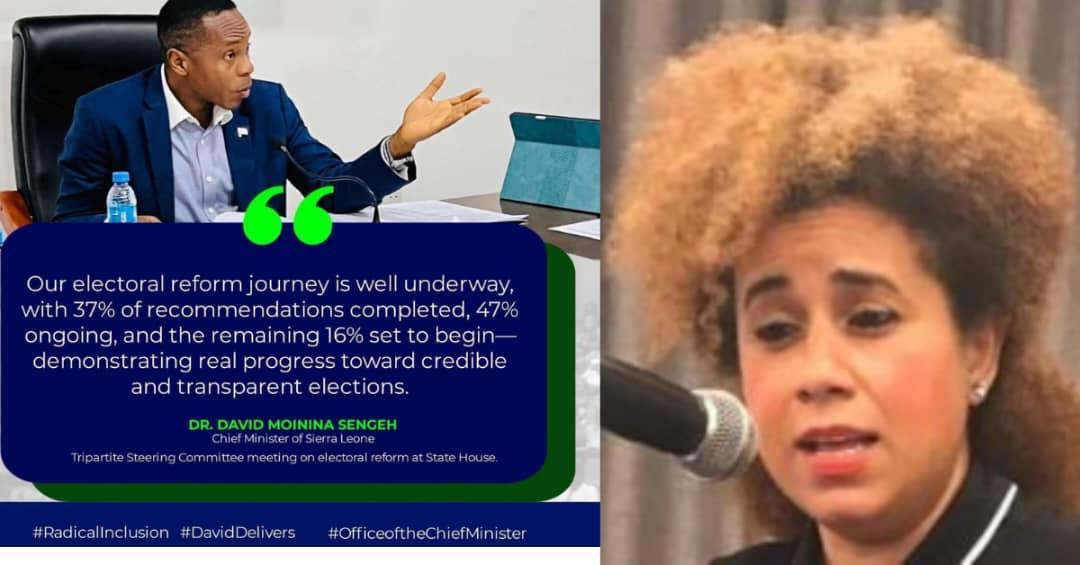Basita Michael
Africa-Press – Sierra-Leone. Sierra Leone’s Chief Minister, Dr. David Moinina Sengeh, declared “real progress” toward credible and transparent elections, citing 37 completed electoral reforms, 47 ongoing, and 16 set to begin. On paper, these numbers suggest a government committed to strengthening democracy.
But when 74% of Sierra Leoneans, roughly 6.6 million people, say they have never even heard of the country’s electoral reform process, according to the 2025 Afrobarometer Round 10 survey, the Chief Minister’s claims ring hollow.
The demographic breakdown is even more troubling. Only 16% of women, 20% of rural residents, and a mere 13% of northerners are aware of these reforms, as noted in an August 2025 editorial by Truth Media. If the majority of citizens are unaware of these changes, how can they trust them? How can they engage with them? How can they believe in a process they’ve been excluded from?
Democratic legitimacy demands more than legal authority. It requires public participation, transparency, and informed consent. Section 5(2) of Sierra Leone’s 1991 Constitution is unequivocal: “Sovereignty belongs to the people of Sierra Leone from whom Government through this Constitution derives all its powers, authority and legitimacy.”
Yet, when three-quarters of the population is left in the dark, these reforms risk being seen not as tools for credible elections but as instruments of manipulation, shrouded in secrecy and serving hidden agendas.
Structural barriers, including low literacy rates, limited internet access, and sparse electricity, have long excluded rural residents, women, and the poorest citizens from political discourse. These gaps demand proactive outreach, not passive reliance on urban-centric media or elite-driven committees.
As Truth Media’s editor aptly stated, “If Sierra Leone is to build a truly representative electoral system, it must start by listening to the 74% who haven’t been given a seat at the table.” Political and constitutional reforms cannot be the exclusive domain of political parties or government insiders.
Electoral reforms are for the people of Sierra Leone, not for one political party or the politicians. Excluding the public undermines the very principles of security, peace, and welfare that the government is duty-bound to uphold under the 1991 Constitution.
If government truly believes in democracy, it must prioritize inclusive communication and public engagement. Reforms conducted in the shadows, no matter how many are “completed” or “ongoing,” lack legitimacy.
The road to credible and transparent elections begins and ends with the people. Without their trust and participation, we are not walking toward democracy; instead we are walking away from it.
Source: Sierraloaded
For More News And Analysis About Sierra-Leone Follow Africa-Press






